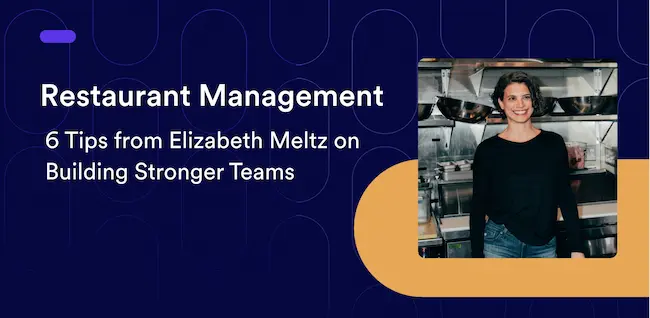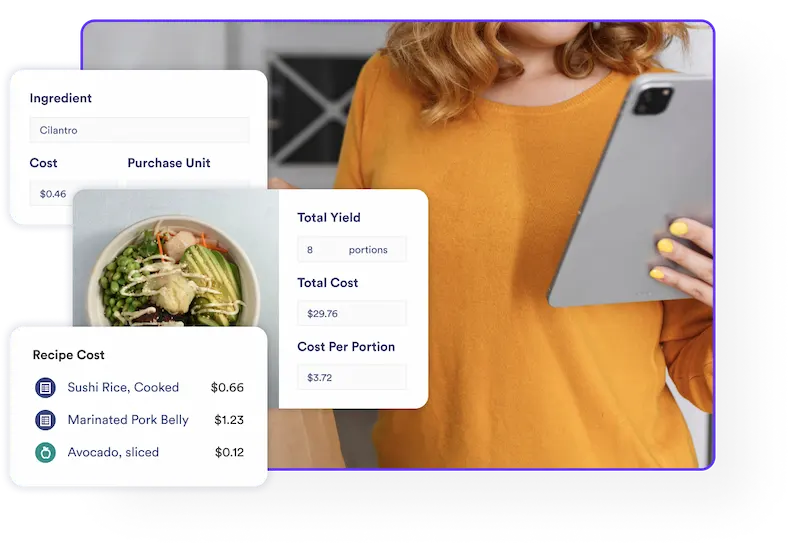In a recent episode of The meez Podcast, celebrated chef and author JJ Johnson shared insights on scaling his fast-casual restaurant, FieldTrip. As Johnson discussed his journey and challenges, several key lessons emerged that can be valuable for anyone in a leadership role.
1. Vision and Consistency
Employees often stay at FieldTrip because of JJ's dedication and clear vision to create a rice bowl shop that connects people through diverse rice dishes. He believes rice is a universal connector and wants to utilize one ingredient to tell multitudes of stories around food and places he's experienced.
Maintaining this vision across multiple locations requires a commitment to consistency. Johnson noted the challenges in ensuring the same taste and quality at every location, which underscores the importance of clear, standardized processes and training.
"I really leaned into fast casual, saying, okay. Chipotle does this very much fresh cooking type of approach, what about if we try to take that same approach and do this fresh cooking model around freshly milled grain? So 90 percent of rice is freshly milled from different regions of the world that celebrate rice and each of those bowls tell a story."
2. Adaptability and Problem-Solving
Opening a fast-casual spot in Harlem and expanding to other locations came with unique challenges. Johnson emphasized the need to adapt to different market demands and operational hurdles.
For example, when customers were not accustomed to the firmer texture of perfectly cooked rice, he adapted by slightly overcooking the rice to meet their expectations while still staying true to his culinary principles.
"When I first built FieldTrip, I was like, 'Oh, this is how I cook rice.' This is how I want the line set up. It's not the case anymore. Now, I'm like what can the team do? How can they do it? How does it get executed the best?"
3. Employee Empowerment and Training
Leaders should cultivate a strong, personal connection with their team, making them feel valued and understood. Thorough training programs, particularly for cooking rice, were one of the central ways he was able to achieve this.
Not everyone is initially capable of cooking rice to his standards, so he implemented a structured training program that includes understanding different rice types, washing, measuring, cooking, and fluffing techniques. This approach not only ensures quality but also empowers employees with the knowledge and skills they need to succeed.
Training is a key component if you order rice from FieldTrip. If the rice is F'd up, then you're not coming back. So we have a FieldTrip rice manual to help with this. For your training program, you come in three days, in a unit, and you work on five different areas of rice. How to wash rice, how to measure rice, cook it, how to fluff it, how to fry rice."
4. Simplicity in Scaling
JJ Johnson’s strategy for scaling his brand focuses on simplicity to maintain quality and efficiency. He emphasizes that many successful early-stage brands start with a limited menu, which aids in managing inventory, training staff, and ensuring consistency across locations.
By keeping the menu simple, restaurant leaders can streamline operations, making it easier to scale without compromising on the quality of the core offerings. This approach allows for better operational control and helps sustain the brand's strengths as it grows.
I'm a big fan of batch cookery. That's what FieldTrip is. It's a batch cookery brand. It's not a whole, four hour brand like a lot of other brands out there. So, that's where I would say where I butt heads with what I created. Because as it grows, it starts to change and you have to start to put different things in place. Some of those skill sets I have, some of those skill sets I don't have.
5. Attention to Detail
Equally important to Johnson's strategy is his strong attention to detail. From selecting the right rice grains to determining precise cooking times, every aspect of meal preparation is meticulously managed. This level of detail reflects the brand’s commitment to quality and ensures that each element of the meal meets high standards.
By focusing on critical details, leaders can consistently deliver on the key aspects that define their brand, ensuring these are maintained across all operations as the brand expands.
One thing that helps with consistency is purchasing the same item. Making sure our broadliners have the same order guide for everybody. Nobody can alter it. We are also getting into a daily checks now, figuring out how long something stay on the line for our busier locations, making sure the team isn't putting too much on our hotbox because they're scared they're going to run out.
6. Cultural and Community Connection
Johnson’s roots and cultural influences play a significant role in FieldTrip’s identity. He draws from his Afro-Asian American heritage and the flavors of Harlem, creating a menu that resonates with the local community and beyond.
Leaders can learn from this by embracing and celebrating their unique cultural backgrounds and using them to forge deeper connections with their communities.
FieldTrip is about people being able to grow in their communities. Yes, it's a rice bowl shop, but it's really about empowering people like Shay who lived in, you know, a place that wasn't safe for her to live, that she was able to grow and get her own apartment, or it's about Kima who's trying to start her own hot sauce company."
7. Prioritize Upward Mobility
FieldTrip is not just a place to work; it’s a community where individuals can grow. At JJ’s restaurants, he has established a clear pathway for employee progression: from team member to team lead, to manager-in-training, and finally to store manager. This structure helps employees see a future within the company.
Leaders must also recognize when employees are not ready for promotion. Pushing someone prematurely can lead to poor performance and frustration. Instead, invest in employees’ skills even if it might not immediately pay off.
We want our staff to be excited about the food. If they have no experience in the food world and this is just a job for them, or they have a lot of experience in the food world, they should be excited about what we're cooking, how we're preparing it, who we're ordering it from, the storytelling. And we have a lot of employees like that, which I believe reason why the brand has been able to expand.
Conclusion
JJ Johnson’s approach to scaling FieldTrip offers valuable lessons in maintaining vision and consistency, adapting to challenges, simplifying operations, and much more. These leadership principles can guide not only those in the culinary industry but also leaders across various sectors in building and scaling successful ventures.
Listen to the full episode of The meez Podcast with JJ Johnson



.webp)



